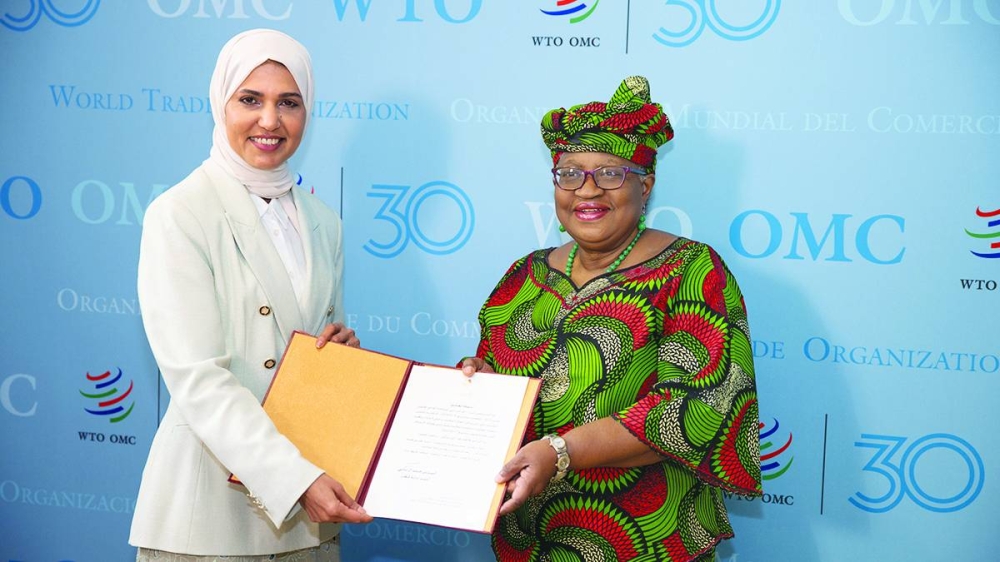Qatar has formally accepted an agreement on fisheries subsidies as part of efforts to protection of the maritime ecosystem, and environmental sustainability, the Word Trade Organisation (WTO), announced Wednesday.
"The depositing today of our instrument of acceptance of the WTO Agreement on fisheries subsidies is a symbol of Qatar’s steadfast engagement towards regulated fishing, the protection of the maritime ecosystem, and environmental sustainability," said Dr Hend bint Abdalrahman Mohamed al-Muftah, Qatar’s Permanent Representative to UN-Geneva after presenting the country's instrument of acceptance to WTO director-general Ngozi Okonjo-Iweala.
"We hope that this step forward in our collective efforts to protect the planet and the environment for us and next generations will ignite a succession of similar endeavours aimed at consolidating our multilateral objective,” she said.
Qatar is the third Gulf Cooperation Council country to accept the agreement. Saudi Arabia and the UAE are the other two Gulf countries.
Qatar's instrument of acceptance brings to 76 the total number of WTO members that have formally accepted the agreement. Three members from the Middle East have formally accepted the agreement. As many as 34 more formal acceptances are needed for the agreement to come into effect. The agreement will enter into force upon acceptance by two-thirds of the membership.
"By taking this step, Qatar has shown its support for sustainable fisheries and combatting illegal fishing in the Gulf region. Qatar also has affirmed the WTO's vital role in delivering global public goods — in this case contributing to marine sustainability by curbing subsidies to harmful fishing practices," said Okonjo-Iweala.
The swift entry into force of the agreement would bolster both the health of oceans and the livelihoods of the millions of people who depend on them, she said, expressing the hope that the remaining WTO members will follow suit quickly for the benefit of people and oceans.
Adopted by consensus at the WTO's 12th Ministerial Conference (MC12), held in Geneva on 12-17 June 2022, the agreement on fisheries subsidies sets new, binding, multilateral rules to curb harmful subsidies, which are a key factor in the widespread depletion of the world's fish stocks.
In addition, the agreement recognises the needs of developing and least-developed countries and establishes a fund to provide technical assistance and capacity building to help them implement the obligations.
The agreement prohibits support for illegal, unreported and unregulated (IUU) fishing, bans support for fishing overfished stocks and ends subsidies for fishing on the unregulated high seas.
Members also agreed at MC12 to continue negotiations on outstanding issues, with a view to adopting additional provisions that would further enhance the disciplines of the agreement.

Dr. Hend bint Abdalrahman Mohamed al-Muftah, Qatar’s Permanent Representative to UN-Geneva present Qatar’s instrument of acceptance to WTO director-general Ngozi Okonjo-Iweala.

